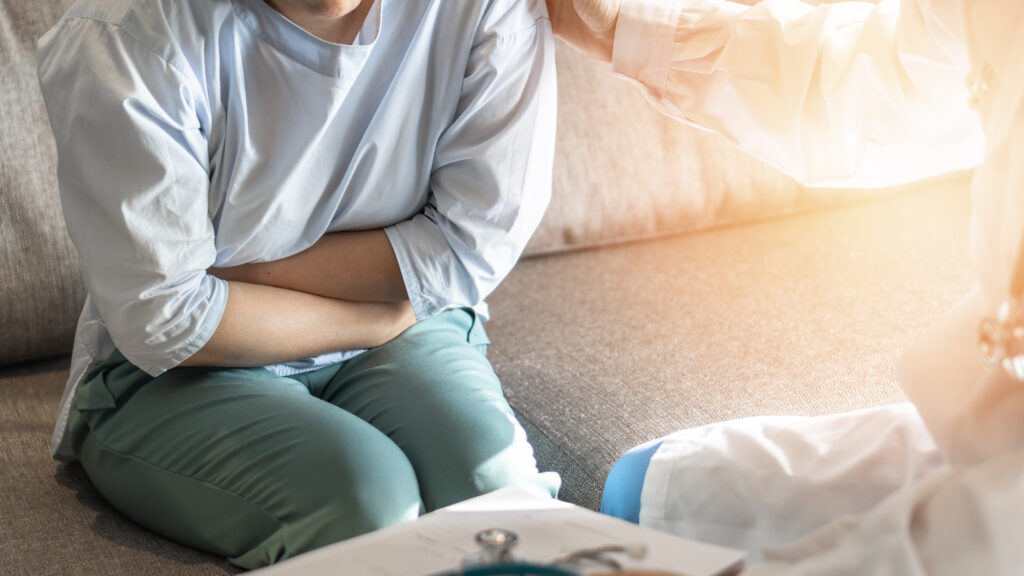Chronic Gynecological Conditions and Your Mental Health
Posted By:
Dr. Michael Coyle, DO FACOOG, FPMRS

Research indicates that tens of millions of women are impacted by some kind of chronic gynecological condition, like endometriosis or lichen sclerosus, worldwide. While there have been noteworthy advances in how these conditions are managed and treated, one concerning aspect of living with a chronic gynecological condition is often overlooked: the psychological impact.
Women who are diagnosed with one of these chronic illnesses often psychologically suffer in silence and do not get the support they need to maintain good mental health. Continue reading to find out more about the emotional and mental toll of long-term gynecological conditions and the importance of taking a holistic approach to care.
Understanding Chronic Gynecological Conditions
Two of the most common chronic gynecological conditions affecting the female population include lichen sclerosus and endometriosis.
Endometriosis is thought to affect as much as 10 percent of the female population. The condition is physically characterized by an overgrowth of the endometrium tissue outside the uterus, which can lead to pelvic pain, painful menstruation, issues with fertility and pain during or after sex. Unfortunately, there is no cure for the condition, which means women have to deal with symptom management for the long term.
Much like endometriosis, lichen sclerosus (LS) is a common gynecological condition that affects up to three percent of women. LS is a chronic condition that affects the skin of the vulva and other surrounding tissues due to ongoing inflammation. Symptoms of LS can be difficult to manage and painful, sometimes resulting in irreversible changes to the structures of the skin in a highly sensitive area because there is no cure. Symptoms can include pain, irritation, itching and burning, and can be exacerbated by urination or intercourse.
The Emotional and Mental Toll
Both endometriosis and LS, as well as other chronic gynecological conditions, can undeniably be uncomfortable due to physical effects. However, these conditions can also take an emotional toll as well. It is not uncommon for women with a chronic condition diagnosis to face issues with:
- Stress related to the condition or the symptoms of the condition
- Anxiety related to dealing with symptoms or how the condition could affect their personal lives
- Depression due to disruptions with the ability to conceive or ongoing discomfort and challenging symptoms
- Impacts on self-esteem and body image due to changes in the body or skin related to the condition
Each chronic condition can come along with its own set of concerns when it comes to the emotional toll. For example, women with endometriosis often deal with anxiety about the inability to conceive, while women with LS often struggle more with self-esteem due to changes in the skin around the vulva.
Challenges in Social and Personal Relationships
Chronic gynecological conditions like LS or endometriosis can also have a detrimental effect on social and personal relationships. For instance, someone with LS may feel self-conscious about intimacy or apprehensive about sex because of discomfort. Likewise, an individual with endometriosis may struggle with planning for social outings due to the inconsistency of periods and irregular or excessive bleeding. Additionally, pain caused by sex or problems with fertility may even be challenging to navigate in romantic relationships.
Coping Mechanisms and Support Systems
Developing effective coping strategies is just as important as having an effective treatment plan for chronic gynecological conditions. For some women, seeking therapy through a mental health professional can be vital to work through some of the psychological effects of dealing with a chronic health condition.
Building a strong support network of friends, family and healthcare professionals is also important if you have been diagnosed with a chronic condition as a woman. There are several support groups available for people who suffer from specific conditions, such as Speak Endo and other online communities for women with endometriosis.
Holistic Care Approaches at the Coyle Institute
At the Coyle Institute, we take a holistic approach to treating the whole person and not just the condition when it comes to urogynecological care and chronic conditions. That means that we offer necessary medical support and treatment personalized for the individual, but we also offer psychological support, such as counseling options and support network recommendations.
Find Holistic Care for Chronic Gynecological Conditions at the Coyle Institute
While medical treatment and symptom management are undeniably important when you are diagnosed with a chronic gynecological condition, addressing the psychological aspects is just as important for comprehensive care and improved quality of life. If you are looking for expert treatment or support, reach out to the Coyle Institute at 850-637-8258 for more information or to schedule a consultation for a holistic care approach.

